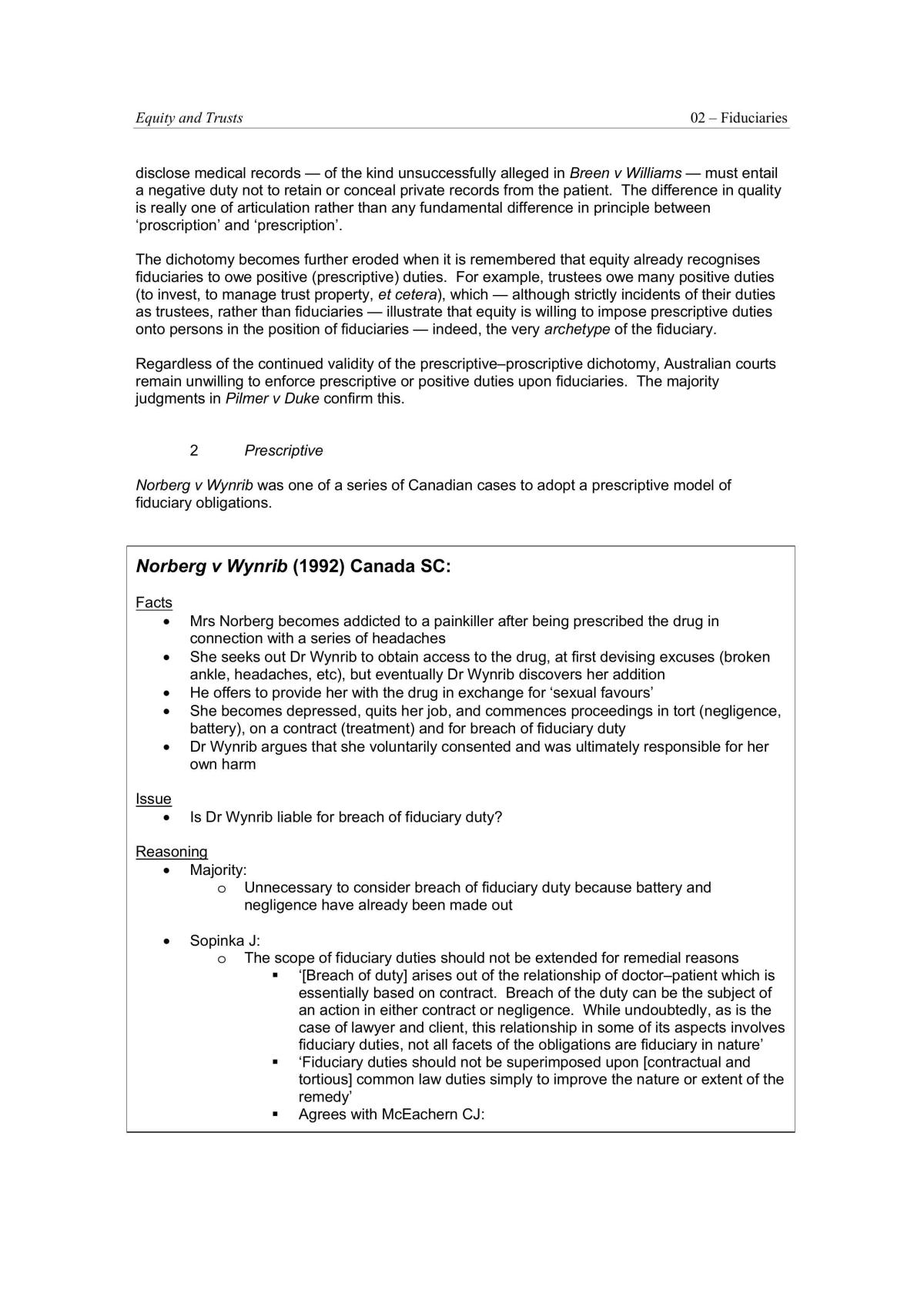Find
Search for over 200,000 study notes and past assignments!
Swap
Download study resources by swapping your own or buying Exchange Credits.
Study
Study from your library anywhere, anytime.
Equity and Trusts - Fiduciaries
200016 - Equity Trusts and Remedies 1
1 Found helpful • 95 Pages • Complete Study Notes • Year: Pre-2021
In the ordinary course of things, a fiduciary relationship arises when a person (the fiduciary) undertakes to act in another’s best interests, or is obliged so to act, and that other reposes confidence in the person so to do: Hospital Products Ltd v United States Surgical Corp (1984) (‘Hospital Products’). Confidence may also be deemed (Whitehouse v Carlton Hotel Pty Ltd), and its reposition need not amount to a confidential relationship (Chan v Zacharia). It is exceedingly difficult to define in anything but the vaguest generality the circumstances capable of giving rise to a fiduciary relation. To derive from the case law any criteria of universal application is all but impossible. For this reason, scholars (most notably Paul Finn) have described the notion of a fiduciary as a ‘concept in search of a principle’. There is some truth to this assertion. The character of a fiduciary is difficult to articulate because of the flexible, ephemeral nature of its treatment by equitable doctrines. Determining whether a particular relationship is of a fiduciary character is important because certain consequences flow from its existence. These consequences take the form of obligations placed on the fiduciary (ie, the party obliged to act in the other’s best interests) over and above any other duties in contract or tort. Breach of a fiduciary duty may give the principal an equitable remedy.
This document is 25 Exchange Credits
More about this document:
|
|
This document has been hand checkedEvery document on Thinkswap has been carefully hand checked to make sure it's correctly described and categorised. No more browsing through piles of irrelevant study resources. |
|
|
This is a Complete Set of Study NotesComplete Study Notes typically cover at least half a semester’s content or several topics in greater depth. They are typically greater than 20 pages in length and go into more detail when covering topics. |
|
|
What are Exchange Credits?Exchange Credits represent the worth of each document on Thinkswap. In exchange for uploading documents you will receive Exchange Credits. These credits can then be used to download other documents for free. |
|
|
Satisfaction GuaranteeWe want you to be satisfied with your learning, that’s why all documents on Thinkswap are covered by our Satisfaction Guarantee. If a document is not of an acceptable quality or the document was incorrectly described or categorised, we will provide a full refund of Exchange Credits so that you can get another document. For more information please read Thinkswap's Satisfaction Guarantee. |

Studying with Academic Integrity
Studying from past student work is an amazing way to learn and research, however you must always act with academic integrity.
This document is the prior work of another student. Thinkswap has partnered with Turnitin to ensure students cannot copy directly from our resources. Understand how to responsibly use this work by visiting ‘Using Thinkswap resources correctly’.
Browse WSU Subjects




